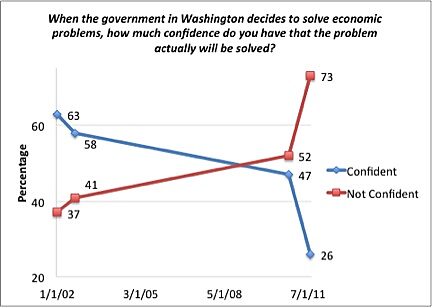Slate worked itself into a lather yesterday over the insidious education policy implications of Michele Bachmann’s Iowa Straw Poll victory:
As recently as a decade ago, Republicans like George W. Bush, John McCain, and John Boehner embraced bipartisan, standards-and-accountability education reform.… Now we are seeing the GOP acquiesce to the anti-government, Christian-right view of education epitomized by Bachmann.… Against a backdrop of Tea Party calls to abolish the Department of Education and drastically cut the federal government’s role in local public schools.…”
To support this narrative, Slate asked Bachmann what the federal government’s role was in education, to which she replied, “There is none; Education is a matter reserved for the states.”
Oh, whoops, sorry. Got that last quote wrong. That wasn’t Bachmann’s answer, it was the answer of the FDR administration.
This answer rests squarely on the Tenth Amendment, which reserves to the states and the people powers not expressly enumerated and delegated to Congress by the Constitution. It was published by the federal government in 1943, under the oversight of the president, the vice president, and the speaker of the House.
Though it might come as a surprise to Slate’s writers, our nation was not founded on state-run schooling. And, until very recently in historical terms, the idea that the federal government had a role to play in the classroom was unthinkable. It may have required some theorizing to evaluate the merits of Congress-as-schoolmarm prior to the feds getting involved in a big way in 1965, but now… now we can just look in the rear-view mirror (see chart below).
With nearly half a century of hindsight, advocating a federal withdrawal from America’s schools does not seem “anti-government.” Just anti-crazy.



